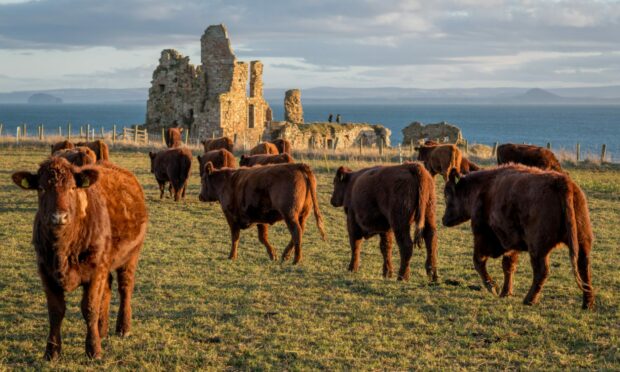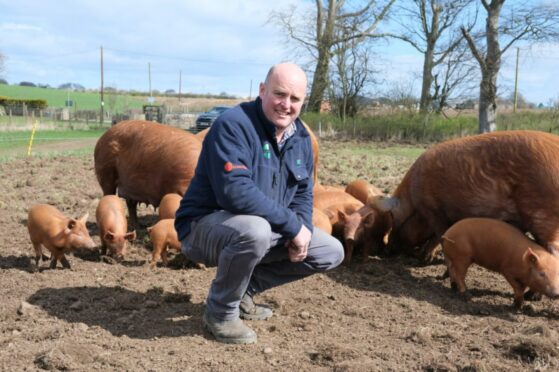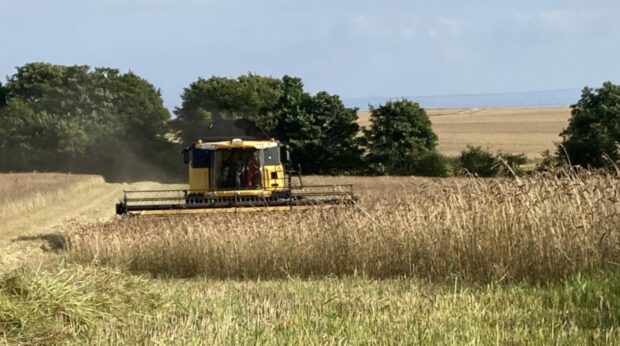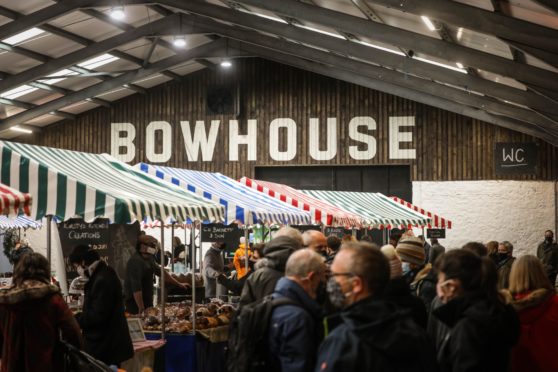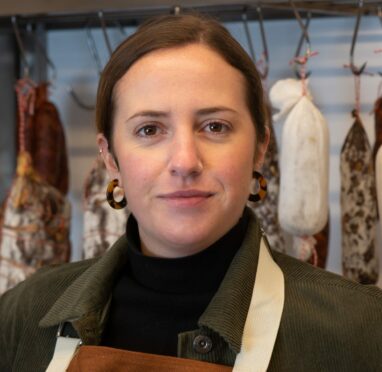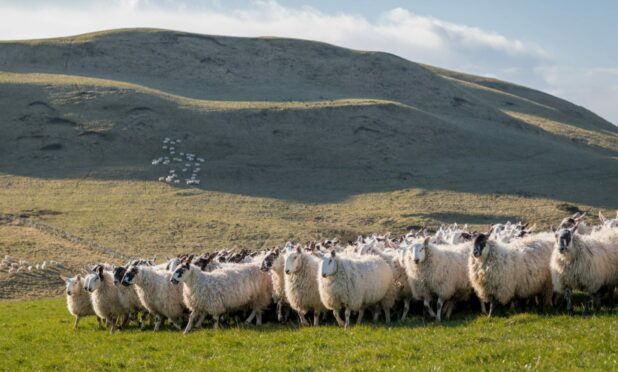If Balcaskie Estate has learned anything from its conversion to organic and regenerative farming, it is that spending less money results in more profit.
At a time when unprecedented increases in the costs of fertiliser and other conventional inputs are at the forefront of minds and undermining confidence in the sector, it is a message that will resonate with growers.
With just over 3,000 acres of quality land in the East Neuk of Fife, Balcaskie has the benefit of scale, a 50-year plan which is already well under way, and the establishment of the Bowhouse food hub which houses small food processing units such as a butchery and flour mill which use some of the raw ingredients produced on the estate.
The farms stretch from the village of St Monans on the coast to Lochty in the gentle hills behind, and in addition to cereals, the enterprises include a herd of Lincoln Red cattle, sheep, and a small herd of Tamworth pigs.
Farms manager Sam Parsons explains livestock are core to the mission to improve soils across the farm.
“All the in-hand farm land is organic and we have planted a lot of herbal grass leys in the last few years to try to improve soil structure,” he said.
“The sheep and cattle play a big part in that and we initially had a few pigs to get rid of couch grass or thistles but we’re now starting to use them in a much more integrated way to use up the spent grains from the mill.
“We’re also using them rotationally to try to clean up fields for wheat.
“The pig industry is getting a hard time and what hurts it is the cost of feed but because we’ve kept the herd small and only feed them on spent grain the feed is essentially free.”
Mr Parsons says adopting an organic system has insulated the estate from some of the recent rises in inputs, and insists that using fewer inputs doesn’t have to result in lower output.
“We were struggling to make ends meet conventionally and that was one of the reasons that we converted to organic,” he said.
“There were a couple of years when we were playing catch-up but now we’re starting to see output increase.
“I would also like to see more enterprises such as poultry and dairy here in future because we’ve learned that a big enterprise isn’t always the best enterprise.
“But the right-sized enterprise is what we need.
“The agricultural industry has been specialising for the last 70 years and getting better at doing one thing really well and we’re learning that’s not very resilient, so having these mixed enterprises is much better for the land and riding out the storms.”
The Bowhouse centre was established by the estate to bring transparency to food production and help build long-term relationships with consumers.
Not only do the permanent businesses at the centre use some of the produce from Balcaskie, a monthly farmers’ market featuring 30-40 food and drink businesses and a similar number of craft stalls regularly draws 4,000-5,000 visitors to the estate.
Mr Parsons said: “Early on we realised there was a disconnect between production in the fields and the consumer, because most of the produce was sent away for processing elsewhere.
“It’s very hard for people to see what they drive past and then be able to go and buy it, and Bowhouse was designed to create that missing link between production and processing and retail.”
Bowhouse butcher Sophie Cumber says one of the reasons she was attracted to opening the butchery was the direct link it provided to the farm.
“It was about knowing not just which farm the animal came from but which field and the whole journey of its life. It means I can see the animals before they go to slaughter then the guys on the farm come back here when the animal comes back, so they see it from the other side as well.
“I knew coming here I’d be working with some fantastic Pasture for Life-certified meat which means they’re eating grass, which is what I’m looking for.”
The estate also grows heritage varieties of wheat and rye for the small-scale Bowhouse flour mill run by Andrew Whitley of Scotland the Bread.
Mr Parsons says that resilience is Balcaskie’s long-term aim and organic conversion has taken them on a steep learning journey.
“We’re not experts but we’re glad to be protected from a lot of the input inflation we’re seeing, so we’re not likely to change in a hurry.”
